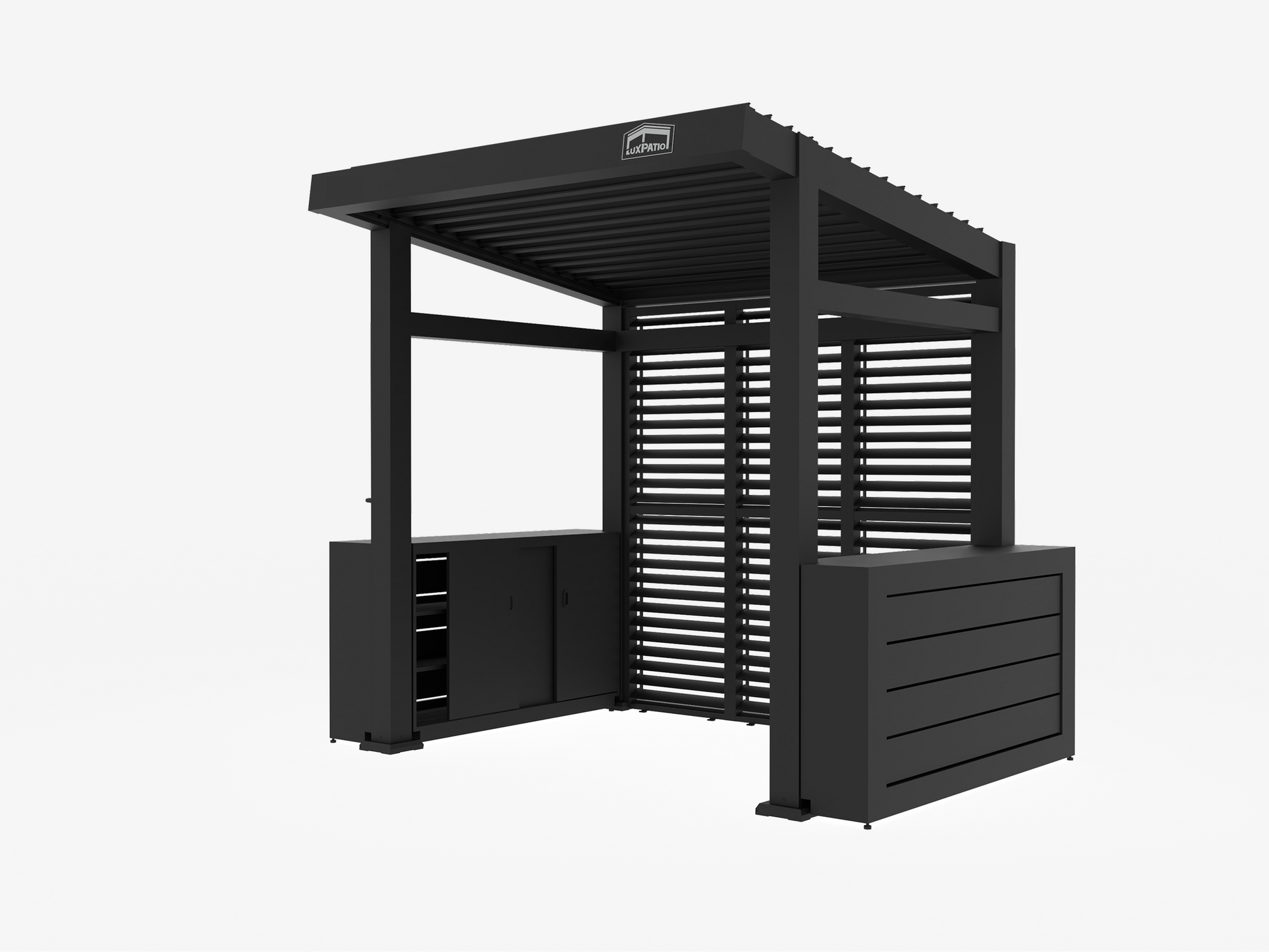Transform Your Backyard: Discover the Magic of Outdoor Pergolas and Their Endless Possibilities!
Outdoor pergolas have surged in popularity as a stylish and functional addition to backyard spaces, transforming ordinary gardens into enchanting retreats. These structures, often characterized by their open framework and elegant design, not only enhance the aesthetic appeal of outdoor areas but also serve practical purposes. Imagine hosting summer barbecues under the dappled sunlight, or enjoying a cozy evening with friends as the sun sets behind a beautiful pergola. As we delve into the world of outdoor pergolas, we’ll explore their various styles, materials, and the multitude of benefits they offer, making them a worthy consideration for any homeowner looking to elevate their outdoor experience.

Understanding Outdoor Pergolas
Outdoor pergolas are garden structures with vertical posts or pillars that support cross-beams and an open lattice or roof. Their historical roots can be traced back to ancient civilizations, where they functioned as shaded walkways and beautifully adorned garden spaces. Over time, their designs have evolved, adapting to modern architectural styles while maintaining their classic charm. Today, pergolas are widely used in residential landscaping, serving as stylish focal points that frame outdoor dining areas, lounges, or pathways. They blend seamlessly into gardens, offering a transitional space that invites relaxation and socializing while providing a hint of shelter from the elements.
Benefits of Outdoor Pergolas
Incorporating a pergola into your outdoor space can yield numerous benefits, making it a worthy investment for homeowners. First and foremost, pergolas enhance property value by adding an attractive feature that potential buyers appreciate. They also provide much-needed shade, allowing you to enjoy your backyard even on sunny days. Beyond functionality, pergolas create a cozy outdoor atmosphere, perfect for entertaining guests or enjoying quiet moments with a good book. Moreover, as a friend of mine recently discovered, they can also serve as a canvas for creativity—adding string lights or draping fabric can transform the space into a magical retreat, ideal for evening gatherings.
Styles of Outdoor Pergolas
When it comes to architectural styles, outdoor pergolas can range from traditional to modern and rustic designs, each offering unique characteristics that can complement various landscaping themes. Traditional pergolas often feature intricate woodwork and classic arches, lending a timeless elegance to gardens. Modern styles, on the other hand, embrace minimalism with clean lines and sleek materials, making them suitable for contemporary outdoor spaces. Rustic pergolas, typically constructed from reclaimed wood, add a charming, earthy feel to gardens, enhancing their natural beauty. By choosing a style that aligns with your existing landscape, you can create a cohesive outdoor environment that reflects your personal taste.
Materials Used for Construction
The choice of materials for building a pergola is crucial as it affects both the structure's aesthetics and longevity. Common materials include wood, vinyl, and metal. Wooden pergolas, often made from cedar or redwood, offer a classic look but require regular maintenance to prevent rot and weather damage. Vinyl pergolas, in contrast, are low maintenance and resistant to fading and cracking, making them a practical choice for busy homeowners. Metal pergolas, often made from aluminum or steel, provide a sleek, modern appearance and exceptional durability but can be susceptible to rust if not treated properly. Each material has its pros and cons, so it's essential to consider your lifestyle and preferences when making a choice.
Creative Ways to Personalize Your Pergola
Personalizing your pergola is an exciting way to make it a true reflection of your style and enhance its functionality. Consider adding climbing plants, such as wisteria or jasmine, which not only beautify the structure but also provide additional shade. String lights can create a warm, inviting ambiance during evening gatherings, while outdoor furniture can transform the space into a comfortable lounge area. My neighbor recently adorned her pergola with colorful lanterns and cushions, turning it into a vibrant nook for family gatherings, illustrating how simple touches can elevate an outdoor space into a personal haven.
Enhancing Your Outdoor Space with Pergolas
In summary, outdoor pergolas offer a transformative potential for enhancing backyard spaces, combining aesthetic appeal with practical benefits. They serve as a stylish addition that can elevate property value, provide shade, and create a cozy atmosphere for relaxation and entertainment. As we’ve explored various styles, materials, and personalization ideas, it’s clear that a pergola can become a cherished feature of your outdoor area. So, whether you’re planning a summer gathering or looking for a serene spot to unwind, consider adding a pergola to your outdoor space—it may just become your favorite retreat in your backyard!








